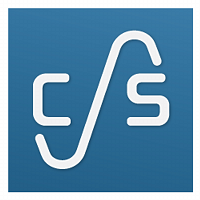 Calgary Scientific Inc. (@calsci), a company known for creating innovative technology for the medical industry and beyond, announced results of a roundtable about mobile adoption strategies and policies by healthcare providers. To learn more about the current state of mobile adoption for clinical care, Calgary Scientific convened a virtual roundtable of industry experts and clinical leadership from Martin Luther King Junior Community Hospital, Center for Connected Health Policy, SUNY Downstate School of Medicine, UT Southwestern Medical Center, UC Davis Medical School, Integrated Healthcare Association and Citrix.
Calgary Scientific Inc. (@calsci), a company known for creating innovative technology for the medical industry and beyond, announced results of a roundtable about mobile adoption strategies and policies by healthcare providers. To learn more about the current state of mobile adoption for clinical care, Calgary Scientific convened a virtual roundtable of industry experts and clinical leadership from Martin Luther King Junior Community Hospital, Center for Connected Health Policy, SUNY Downstate School of Medicine, UT Southwestern Medical Center, UC Davis Medical School, Integrated Healthcare Association and Citrix.
The roundtable’s discussion addressed mobile device adoption which brought about the following:
- The future of patient care delivery will be mobile, yet opinions differ on when mobile devices will be widely adopted.
- Mobile devices in clinical settings offer a path to rationalizing and synchronizing the integration of health IT with clinical workflow.
- Institutional support is necessary to ease the integration of health IT with physician workflow.
As one participant said, “It’s our clinical staff that are pushing us to provide mobile access.”
Mobility adoption continues to grow because it offers relevant, secure and timely access to any clinical content. In a 2016 survey, 83% of physicians who own smartphones reported using them at least once in a clinical setting and 97% said their smartphone’s greatest benefit is fast access to information. However, the extent to which providers can use their smartphones and tablets varies broadly between hospitals and healthcare systems, and even among departments at individual hospitals.
The reality is that hospitals and health systems need clinical mobile tools that can be deployed within the context of their current health IT infrastructures. As a result, clinical tools for mobile devices for these environments must have the following attributes:
- Clinical Relevancy: Mobile clinical applications must be able to provide dedicated functionality within the mobile application that matches what the clinicians can do on the desktop interface while still interoperating with the existing health IT systems.
- Patient data protection: In the face of increasing security breaches among hospitals and health systems, any mobile clinical tool must provide both HIPAA compliance and integrated security for Protected Health Information.
- Integration with existing security: Mobile tools must support integration into existing security and network access systems to provide single sign-on for users and avoid added IT complexity.
- Low IT footprint: Mobile clinical tools should support the usability of smartphones and tablets apps.
About ResolutionMD®
ResolutionMD enables doctors to securely view patient images and reports from a wide variety of computers and mobile devices, collaborate with other practitioners and diagnose from any location. Whether you are a single facility or a large healthcare system with tens of thousands of users, ResolutionMD is the best choice for seamless image access across multiple departments. ResolutionMD is globally accredited by the FDA, CFDA, TGA, PMDA, MDCO, MFDS, HSA, CE, ANVISA, Turkish MoH and Health Canada for mobile medical diagnosis. The software can be integrated into any EMR and easily plugs into existing distributed storage systems. ResolutionMD’s federated approach is an important differentiator from other solutions as highly sensitive data is never moved to any device and no additional data storage locations are created. ResolutionMD is currently installed in leading healthcare institutions around the world via a network of more than forty-five world class healthcare partners.
About Calgary Scientific Inc.
Calgary Scientific is the global leader in web and mobile diagnostic medical imaging and cloud enabling solutions.
